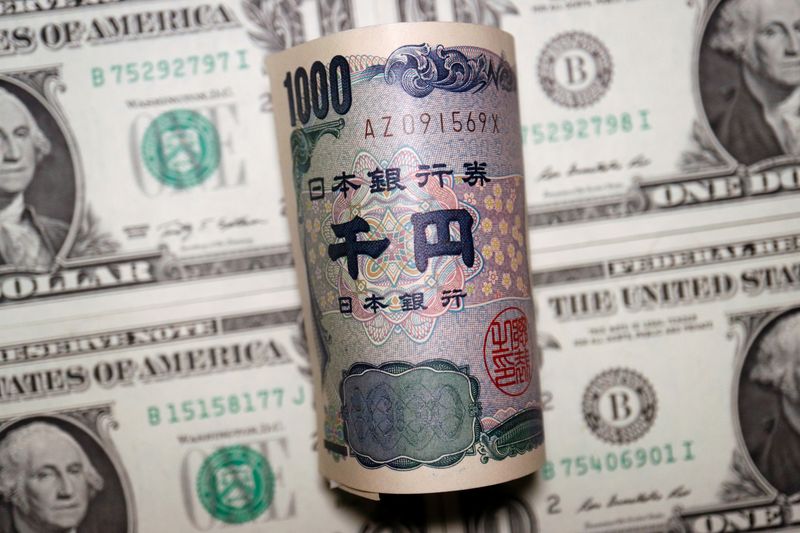Investing.com– Most Asian currencies fell on Friday, relinquishing some gains from the prior session as uncertainty over the path of U.S. interest rates persisted, while the Japanese yen edged lower as the Bank of Japan kept its ultra-loose policy
Yen near seven-month low as BOJ offers no surprises
The recouped some early losses after the BOJ decision, but traded close to seven-month lows against the dollar.
The at record lows, and said it will continue with its yield curve control policy for the near-future to support economic growth. The bank also forecast above-average strength in the Japanese economy this year.
Expectations of a dovish BOJ weighed heavily on the yen in recent weeks, as somewhat hawkish signals from the Federal Reserve pointed to a widening gap between Japanese and U.S. interest rates.
Focus is now on an address by BOJ Governor Kazuo Ueda for more cues on the path of monetary policy and , which is still trending well above the BOJ’s target range.
Uncertainty over the Fed weighed on broader Asian currencies on Friday, although most regional units saw some relief after the dollar plummeted in overnight trade. The and rose 0.1% in Asian trade after sliding about 0.8% in overnight trade.
The Fed had earlier this week, but forecast at least two more hikes this year as continued to trend above the central bank’s target range.
But a swathe of weak U.S. economic readings, namely slowing , steady and sluggish , raised questions over just how much headroom the Fed had to keep raising interest rates.
Still, U.S. interest rates are expected to remain higher for longer, limiting any major gains in Asian markets.
The fell 0.2% on Friday, while the rate-sensitive lost 0.4%.
The fell 0.1% after racing to a one-month high this week, as the currency also benefited from weaker oil prices.
Rate cuts weigh on Chinese yuan
The fell 0.2% on Friday and hovered just above six-month lows to the dollar after the People’s Bank of China cut a slew of lending rates this week.
The PBOC cut short and medium-term lending rates, and is broadly expected to trim its benchmark next week, as it struggles to shore up economic growth.
The trend points to a widening gap between Chinese and international interest rates, and is expected to further dent the yuan’s appeal.
Read the full article here




